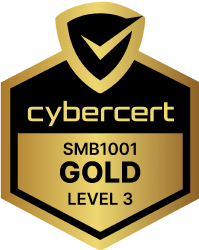As the UK movies towards a ‘digital Britain’, more and more businesses are utilising cloud technologies and the internet of things to increase automation, reduce costs and improve workflow.
Understanding the internet of things and IoT SIM cards is important if you’re considering upgrading your existing infrastructure or workflow.
What is an IoT SIM card?
An IoT SIM card is a SIM (like the one you might find in your phone), that is used by a machine/device to send information to another machine/device over a cellular data connection such as 3G or 4G. This is often called ‘machine 2 machine’. These IoT SIM cards use a fixed IP address to maintain a connection to a server or VPN.

IoT, also known as ‘internet of things’ is the term used to refer to the network of IoT devices, all communicating with small amounts of data between one another.
A great example of an IoT SIM card is a smart meter in your house. Most modern smart meters have an IoT SIM card inside, that relays data back to your energy provider, allowing them to monitor usage remotely, and therefore reduce engineer visits.

Over the past 5 years, an increasing number of businesses are changing their processes to include IoT connectivity. Using IoT SIM cards in their machines and devices allows remote control and diagnostics from one central location.
This is where it gets a little more complicated…
IoT SIM cards use a fixed IP address connects your IoT device to a central server or data. Having a fixed IP address allows IoT SIMs to establish a connection to a central location (such as a server), and send data backwards and forwards.
With a fixed IP address IoT SIM card, you can also connect to virtual private networks (VPNs), which creates a ‘tunnel’ between your IoT SIM cards and your server.
What is the difference between an IoT SIM and a normal SIM card?
The main difference between IoT and normal SIM cards is that IoT SIM cards have a unique ability to connect to multiple different cellular networks—this is called ‘network roaming’.
With roaming, IoT SIMs don’t have to rely on the coverage of one particular network. A great use case of this is our IoT SIMs in the Prolectric Lighting Towers. These lighting towers travel around the country and need to feed data back to the Prolectric HQ from wherever they are.
Normal SIMs would not be able to establish a connection reliably everywhere; whereas roaming SIMs connect to the strongest available network and can therefore support the lighting towers wherever they are in the country.
However, roaming is not the only difference between IoT and normal SIM cards.
Traditional SIMs, like the one you might find in your mobile phone, have both voice and data connectivity—so you can make calls and browse online. However, IoT SIMs only have data connectivity loaded into them. This is because they don’t need to make voice calls, only transmit data.

As you can see, there are quite a few differences between IoT SIM cards and normal SIM cards; but this is because IoT SIM cards have very specific use cases, such as the ones below…
Applications of IoT SIM cards
With digital transformation at the forefront of industry changes, businesses are looking to upgrade their workflow to help reduce costs and be more productive.
Here’s some of the most common applications of IoT SIM cards.
- Renewables
Renewable energy is one of the worlds fastest growing industries. As the need for environmentally friendly energy grows, businesses providing it are reducing their costs by utilising IoT SIM cards.
Being able to monitor and manage your equipment and infrastructure from one central, remote location is a huge benefit of the IoT. The IoT is also helping renewable firms such as Prolectric cut their engineering and diagnostic costs.
- Smart metering
Smart meters are not a new invention. In fact, you may well have one in your house right now. These smart meters are helping both consumers and businesses to manage their costs, reduce engineer visits and keep tabs on their energy usage.
However, it’s not just household energy consumption that smart meters are used for. Other applications of IoT enabled smart meters include industrial plants, machines and sensitive equipment that requires remote monitoring.
- Manufacturing
Lots of manufacturing plants and production lines are streamlining their operations by using the IoT. With smart production lines replacing old, outdated equipment, managers are able to remotely oversea their entire manufacturing process from one central location.
We see lots of manufacturing businesses using fixed IP IoT SIMs like ours in their production and assembly lines; once again, to reduce costs, cut down on faults and improve output.

- Security
Just like smart meters, CCTV and security sensors are nothing new. They’ve been around for years and help businesses and consumers keep their property secure. However, using IoT SIM cards, these systems are getting smarter.
By sending data over the internet of things, CCTV cameras, motion sensors and other security equipment is able to alert personnel in real time, send data feeds back to the security office, or even alert the authorities.
Using our IoT SIMs, businesses are helping to deter malicious actors and increase the security of their equipment and property, without large staffing costs.
- Automotive
A lot of modern cars use the IoT to provide additional services to their drivers. Features such as in-car WiFi, remote control central locking, GPS tracking services, theft protection and more all rely on the IoT.
Using an IoT SIM card, cars can provide these advances services to their drivers and passengers, making the journey more comfortable and deterring thieves.
Another great automotive application of the IoT is through the use of smart motorways and traffic systems. Smart motorways use the internet of things to provide real time data to a central control location.
This data can be used to make informed decisions about traffic flow, lane openings/closures and other traffic calming measures. The with IoT SIM cards inside these smart motorways, they have helped reduce congestion and improve traffic across the UK.






